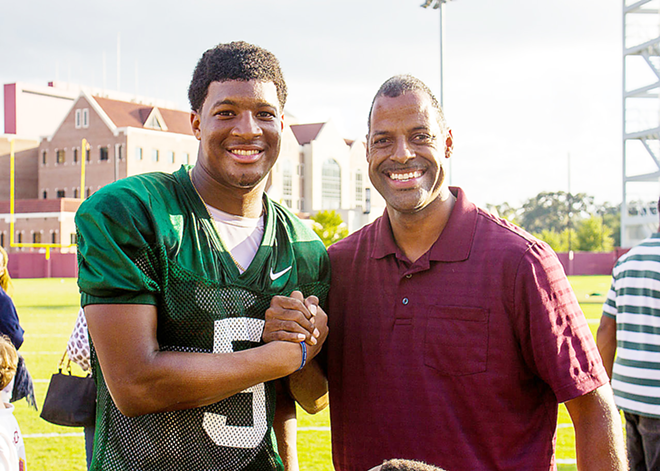Colleges all across the country are taking heat for the way their administrations deal with sexual assault cases, as more and more students speak up about how such cases are handled.
In early May, the Department of Education released a list of 55 colleges that are now under investigation for potential violations of the federal anti-discrimination law under Title IX of the Education Amendments of 1972. The law prohibits gender discrimination at colleges that receive federal funding. Sexual harassment and violations are considered forms of sex discrimination, and Title IX requires colleges and universities that receive federal funds to investigate and resolve any sexual assault claims in a timely and impartial manner.
Florida State University is among the schools being investigated, following complaints over handling of the notorious Jameis Winston case. Others on the list include Vanderbilt University, Emerson College, and the University of Connecticut. Twelve more colleges were added in early July.
But where these and other schools are scrambling to update their sexual assault policies and procedures, school officials at the University of South Florida say they have been ahead of the curve for years. USF has had victim advocacy departments on campus since 1992, said Nanci Newton, director of USF’s Center for Victim Advocacy & Violence Prevention.
“The truth is we’ve had systems in place for so long that have worked very well that we’re not having to do a lot of the major changes that a lot of places are because we already have… policies and procedures that [are] victim-friendly,” Newton said.
In addition to victim advocates, USF also has bystander intervention programs. The Relationship Equality and Anti-Violence League (REAL), founded in 2008, hosts peer education sessions, awareness events and outreach campaigns.
Awareness is key, says Michael Freeman, assistant vice president and dean for students at USF.
“What we know works for us is that we try to make students aware as much as possible,” Freeman said. “We try to educate them, we try to engage the campus community and when something happens, we rally around to… provide support for the students.”
At Florida State, fundamental questions about administration response are at the heart of the investigation now underway by the Department of Education’s Office for Civil Rights. An FSU student said she was raped by Jameis Winston, the Heisman Trophy-winning quarterback, on Dec. 7, 2012. The woman reported the sexual assault to the Tallahassee police shortly thereafter. When Winston appeared at a university conduct hearing in January to discuss the alleged assault, the accuser’s attorney said the woman didn’t know about the hearing until after it happened — a few weeks after Winston led the Seminoles to their third national title, according to the Tampa Bay Times.

The lengthy delay of the investigation and the hearing that was held without the accuser’s knowledge raised suspicions of whether or not FSU had violated the Title IX laws.
Under Title IX, schools are required to train officials on how to properly respond when victims confide in them. Institutions should also take any and all measures to eliminate any harassment, prevent its recurrence and address its effects when a hostile environment is identified. The Department of Education may revoke federal funding if an institution does not comply with the law, although that has not yet happened, according to USA Today.
Instead of trying to keep sexual harassment incidents a secret, colleges should bring in outside resources to help with the process of handling reports of assaults on campus, said Laurie Elbow, senior manager of clinical services at Suncoast Center.
“Reaching out is the best thing [colleges] can do… I think a lot of the controversy comes in when… colleges and universities are deciding to handle things internally and not releasing the information to the local law enforcement or reaching out to crisis centers,” Elbow said. “That’s kind of the cultural nature of sexual assault and sexual abuse… to [keep things] under cover or hidden from the public view. It perpetuates some of our cultural thoughts and feelings about what happened, about it being a secret. And that just doesn’t end well.”
The Suncoast Center is accredited through the Florida Council Against Sexual Violence and holds the certification as Pinellas County’s Rape Crisis Treatment Center.
Based on recent Department of Education statistics, the University of Florida, the University of Central Florida and USF report the highest numbers of sexual assaults among Florida schools. On average, USF has about 40 to 45 new sexual assault victims every year.
While this number may seem to be high, Time magazine reports that higher numbers of sexual assault reports from a college may be a good sign, because the school is probably doing a better job at addressing the issue than others.
It could also mean that the students have more confidence in the systems their schools have in place, Freeman said.
“One reason is the size of USF. We’re a campus of about 40,000 students and on any given day, we could have upwards of about 75,000 people on campus,” Freeman said. “A second reason could be that students feel comfortable enough with services that we provide, and the fact that we take it seriously that they feel comfortable with us to make reports when things happen.”
In order to stop campus rape from happening, colleges need to work on ending the rape culture, reports state.
Spreading awareness, promoting consent by both parties, looking into why rape happens on college campuses and stopping victim-blaming are just a few of the many ways that colleges and societies can put an end to the rape culture.
“The single greatest barrier to victims coming forward and reporting sexual assault is the culture of victim-blaming on college campus. Alcohol makes a person vulnerable because it makes a person really not be able to be alert to danger or be alert to what’s happening around them,” Newton said. “Unfortunately, when people focus on the prevalence of alcohol in sexual assaults on college campuses, what they focus on is the victim was drinking, and then the victim gets blamed.”
But alcohol is not the cause of sexual assault, Newton said, and we need to make that clear. Yes, it lowers a person’s inhibitions and impairs his or her judgment, and the ability to make an informed decision. But that doesn’t mean the victim of an assault is at fault, says Newton.
“What they need to be focusing on is the whole aspect of just because someone is vulnerable, why does that mean that somebody else gets to take advantage of that vulnerability? Why aren’t we focusing on, ‘How dare someone take advantage of someone’s vulnerability?’” Newton said.
“All of the focus is on whether there are good systems in place… and how the universities themselves are treating victims. You can have all of that, but victims are still not going to come forward if their peers and [media are] going to blame the victim. Until we can change the victim-blaming culture, it’s going to get in the way of some victims feeling safe enough to report.”














